For a writer who built his literary career on the history of South Africa, it is something he is rarely asked about. I was talking to Jack socially one night, I wanted to ask him about his life growing up in one of the most volatile countries in the world. I asked him point blank:
“Why has nobody interviewed you about your life in South Africa”?
Jack didn’t know, and neither do I.
So, I wanted to do that. This interview is about a world we know little about. The racism, the unfair equality and the way normal South Africans dealt with the disgraceful treatment of their countrymen.
Guys like Jack fought back at the Apartheid without ever picking up a gun.
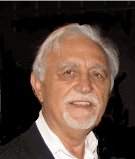
“I will never return to South Africa,” says a defiant Singer.
Q) Great to have you on my site, Jack! I wanted to start off this interview by asking what it was like growing up in South Africa? I think many readers would be interested to see the family side of a country people know so little about.
A) As a child, growing up in South Africa, especially Potchefstroom were I lived was wonderful. One could walk the streets safely, without fear, from a young age. Walking to school from the age of six years old, walking to the municipal swimming pool or walking to the local movie theatre (bioscope) was the norm. The few Africans that worked in the town were respectful and always very helpful. The African maid in your house, that raised you from a baby, was your surrogate mother. You loved her, and she loved you.
Q) How about school? Didn’t you ever wonder why that same African maid’s children were not at your school?
A) You never queried that there were no Africans in your school, or at the municipal swimming pool or bioscope. This was the norm…the way of life and as a young person, you accepted it as the norm, and never queried it.
Q) What about the “Afrikaans” language? Is that widespread in Africa?
A) Because I was English speaking and went to an English speaking school, one was inclined to steer clear of and not associate with Afrikaans speaking children.
It was only when I grew older and went to University that I started to realize and question the abnormalities in South Africa, where children had to attend a school where the language had to be the same as the language one spoke at home. Where one asked, “Why are there no Africans at University and why were they forced to live in the squalor of locations. Why is the Indian community restricted to living in a township confined to Indians only, and why were they not allowed to live in the Province of the Orange Free State? Why did the Afrikaans community that ruled the country after WWII, enforce apartheid on the country? Why did Africans have to carry a pass book with them all the time, arrested by the police if they did not have one with them, and why much later on were we Europeans also forced to have an identity book that identified us as of European origin, English/Afrikaans speaking and many other things and why did we not have to carry the book with them all the time, whereas the African had to?
Q) Why did you leave SA to move to London? What was the draw?
A) My father had studied Pharmacy at Chelsea Polytechnic in London, England. I decided that rather than attend a University in South Africa, I would like to see the world and study Pharmacy in London. After passing Matric when I was seventeen years old, I had to serve a three month stint as a ballottee with the South African navy. In those three months, I lost my puppy fat and became a person who wanted to see the world. I asked my father how much he was prepared to give me every month to live on, and surprised him and my mother when I told them I was going to London, England to complete my studies. I must add that my monthly salary paid my University fees, board and lodging and fed me, but the fourth week of every month, I lived on bread and water. Three years later, after qualifying from Chelsea School of Pharmacy and doing my apprenticeship at the London Hospital in Whitechapel, I earned four times the amount my parents gave me, but the fourth week of every month I still lived on bread and water. There was simply so much to see and do in London.
Q) Some of the greatest writers come from the very romantic city called London. Whilst you were there, did you have any inkling that you would become a writer, or did the writing take place when you returned home to work?
A) Returning to South Africa, I practiced Pharmacy and worked as a Chemist and Druggist. It was only after a friend of mine, Bernard Gamsu, passed away before the age of sixty that I started to write. I had retired from Pharmacy, selling my business, and was feeling bored at home. I felt that I had to tell Bernard’s story and the part he played in my life.
Once I had finished his story, I decided to write the story of my grandfather on my father’s side, so that my children would know him and all about him. From then on, it simply became stories I had heard from friends and customers. They were stories that I felt needed to be told, and so the book BRAKENSTROOM was born. All the stories in it are true, but in a few of the stories I have combined two into one.
The story of Tzippie, remarkable as it is, truly happened. My uncle, Dr. Barney Singer, was the doctor at the mental institution, Witrand, who found Tzippe there and returned her to her family. He had recently become Superintendent of the institution when he retired as Superintendent of the Potchefstroom Hospital. One publisher, when he returned the book to me, refused to publish it because as she wrote, ‘this story cannot be true.’ Yet it was. It was a case of truth is stranger than fiction. The story of Hettie told the story of poor whites who lived in Potchefstroom, another true story as strange as it is.
Q) What was the most remarkable thing that ever happened to you that hasn’t yet made it into a book?
A) In my Pharmacy, to spoil my customers and staff, I bought a coffee machine. I put it in the front shop, and all staff and customers could help themselves to a cup of coffee or tea whenever they felt like it. The first winter, I added soup as an alternative. After a few weeks, I noticed a young school girl and her small sister coming into the shop on their way home from school. They would each draw a paper cup, sometimes two, of soup, and then sit on the pavement in front of the shop and enjoy it. I started putting slices of bread out and they would help themselves.
Years later, a very beautiful woman pulled up in front of the shop in a chauffeur-driven Mercedes Benz. She walked into the shop and asked for me. She was beautifully dressed. She handed me a cheque for R1000.00 with the words, ‘Mr. Singer, as a child you fed me and my sister every day with soup and bread. Please take this money and donate it to a worthy cause.’ Before I could say a word, she leaned forward, kissed me on the cheek and left the shop. This is a story I have yet to write. I never found out who she was, because the Mercedes drove away with her after I had recovered from the shock and before I reacted.
Q) So, returning to our earlier line of questioning, let me ask you, how did your adventures as a young man influence your writing?
A) As a young man, at the municipal swimming pool I met the girl I have called ‘Marla’ in my story. When I sunbathed, I would always burn very dark in the hot sun. Marla’s skin was however always darker than mine. When we went to bioscope, by lifting my shirt, I could always prove that I was a European, because I would look for a piece of white skin on my body that the hot sun had not burned. Marla could not find a piece of white skin on her body. My father had to eventually phone the manager before Marla was allowed to attend. We regarded it as a joke, not taking it seriously.
In the Navy, years later, I thought I saw a Coloured woman that look like Marla’s mother at a station. I forgot about the incident until I started writing my stories.
There are so many people I have met all with a story to tell, and there is so much more that I can write. One day, perhaps I will.
Q) Why would one read “Brakenstroom” and “The Vase with the Many Coloured Marbles”?
A) A reader should read the short stories in Brakenstroom so that they can learn how we lived in South Africa. How in Brakenstroom (Potchefstroom) people lived and why the town was regarded by the police as the largest illegal diamond trading centre in the world.
They should read “The Vase….” so that they can learn how Apartheid (as practised by the National Party who ruled the country) destroyed the lives of many. How so many non-Europeans managed to jump the racial barrier and establish remarkable lives for themselves throughout the country and the world. They were helped by many that lived in the country who fought surreptitiously against the government’s hateful policies.
Q) You took self-publishing a step further and created your own publishing company. Do you think the modern publishing world is too harsh? Too competitive?
A) I have self published both my books. The book Brakenstroom was published by a company I formed in the year 2000, Regnis Publishing after being rejected by many publishers. Any advertising I did was only in Vancouver, Canada, and the book has sold extremely well in Vancouver. With my second book, The VASE with the MANY COLOURED MARBLES, self published through Outskirts Press in September 2011, sales have been very slow because I find that with the advent of the eBook industry, publishers are scared to publish unknown authors. Reviews received, where the book was sent gratis to various readers, have been excellent; but no agent or publisher has taken up the book.
In today’s eBook world, readers can buy a book for 99c. So many authors are even offering their books for free to attract readers. I find that I cannot do that. I will offer a few chapters for free, to attract readers, but I cannot offer a book I personally have read four times, and enjoyed every read, wondering how the hell I could have written such a beautiful book. It took me 4 years to write and 1 year to edit.
Q) You are by trade a successful stockbroker now. Do you think there’s more luck involved when working with the markets or when working in the publishing world?
A) There is more luck involved in the writing trade. With the stock market, you can analyse a company fundamentally and with technical analysis then buy the stock. If you have erred in your analysis, a trailing stop loss can take you out of the stock with a minimum of loss. In today’s world, the writing industry is in a rebirth. With the introduction of the ebook, and with authors writing and self publishing on the Internet at virtually no cost, ebooks can be offered to the readers free of charge. Readers then have the option of determining the ‘writability’ of the author, and if they do not like their writing style, or the book does not interest them, it is ‘bye-bye’ and at no cost. For a new writer to break into that reading ‘audience’, it has therefore become a gamble. Reviews offered on Google and other web pages are suspect. The multitude of blogs introducing the writer to the reader has also become too much to read, many being passed to the ‘spam’ folder. Publishers today are scared to publish an unknown author. It has become too much of a gamble for them.
An author who has spent numerous years writing, editing and publishing a book is therefore hoping that what they have written is acceptable to Readers. This is why I believe that trading the stock market is less of a risk. You personally control your risk. With a book that you have written, you have no control and rely purely on the decision of a third party, but mainly on luck.
Q) Can you apply your talent for seeing trends on the stock market to the writing world?
A) Unfortunately, no. With the stock market you are analysing facts and past history of an investment. With the writing industry, you are relying on a third party to decide whether you, the author, have written a winner or a piece of slush.
The publishing industry today is in a state of flux. Printed books are becoming obsolete. Yes, there will always be those readers who will tell you that they prefer to hold a paper printed book in their hands above that of an eReader, but eReaders are evolving and will soon take over the industry.
Q) As a financial expert have you found it easier or harder to make money from the writing world? Do you have to have high expectations to achieve anything from publishing?
A) Writing a book is the easy part. It is costly, yes, in time and in money, especially when you have the book edited beautifully. It is also costly to self publish, with many publishers being vanity publishers, publishing anything and everything out there to earn income. POD Publishing (Print on Demand) is becoming the norm, and anyone with a decent printer can start a POD company. The Publishing Industry, as it was, had an editor who read the book submitted to them and decided whether they should print it or not. With my first book, BRAKENSTROOM, I had so many publishers over the years inform me that they had placed the book on their short list, because they enjoyed the read, then as the year ended I would receive a letter stating that the Publisher had decided to print only ‘x’ amount of books that year, and because my book was… etc etc it would not be published that year.
Q) Now, I wanted to ask this– the way you ran your chemist shops was almost unique in a way. Can you explain more about the racial equality YOU implemented during the height of racist SA?
A) South Africa was a racist country. The government, under the Apartheid regime, deliberately undereducated the Africans so that they would always remain as servants and not achieve. The town of Potchefstroom, where I lived, was a very conservative town. Louis le Grange, who was a friend and a member of the National Party became a member of Parliament on his personal popularity. He eventually became Minister of Police. I asked him, “Louis, how can you become Minister of Police. It is a terrible job?” One must never forget the Steve Biko murder and the number of Africans imprisoned or murdered under previous ministers. Louis’ answer to me, “Jack, less people are and will be killed.”
When the Democratic Party (DMA) was formed in Potchefstroom, I asked them not to oppose Louis’ bid for re-election. I told them that they would split the vote, allowing the Conservative party to win the seat. Louis, who was Speaker of the House at that time, did not believe me. The DMA, however, listened to what I said. They did not submit a candidate. Louis was re-elected. Two years later Louis died. In the re-election, the DMA put forward their candidate, and they split the vote allowing the Conservative Party to win the seat.
That was my political attitude in Potchefstroom. To directly oppose the National Party would achieve nothing. Direct confrontation was not the way to go, yet years later, when the Potchefstroom University told me that unless I gave them a monthly donation, they would make sure that the Professors and students would not support me, I thumbed my nose at Potchefstroom and in my shop, dressed an African lady in the same uniform as the European girls and had her serve clients in the front shop. I asked two Indian ladies, one a Muslim and the other a Hindu, to come to work in their traditional dresses and serve in the front shop. I also put an African lady on the cash register. Yes, I lost a large number of customers, but with my direct confrontation, I also made a large number of new ones.
I had made a R10,000 donation to the African school in their township, Ikageng. They used the money to build a school hall. They put up a placard thanking the Mooi River Pharmacy for the donation.
Q) You left SA because you felt there would be a “violent” revolution. Do you think there would have been anger aimed at you, simply because you were white?
A) South Africa was fighting a war on the Angolan border with the ANC who were supported by East Germany. The world had put sanctions in place against South Africa, and it was only a matter of time before the country would run out of money. We knew that the ANC would eventually take over the country, and we all expected a violent revolution. When Nelson Mandela did eventually take over in a peaceful revolution, all South Africans, even the world was surprised.
My wife and I, with our family had left South Africa for Canada a few years earlier because we were threatened by the Security Police under the National Party Government. Yes, we were scared of South Africa’s future under African rule, but it was the National Party Government that made us leave the country.
Q) Do you think you will ever return to SA?
A) No. South Africa has deteriorated into a country I cannot return to. There is too much corruption in the African leadership. Potholes scour the roads; unemployment is rife as African politicians feed their Swiss bank accounts. President Zuma spent millions of the country’s Rand on improving his home for his wives – money that should have been spent in creating jobs. Violence has become worse, with burglaries and murder for a few pennies, the norm. When a man like Oscar Pistorius can shoot his girlfriend because he believed that there was a burglar in his bathroom, it becomes something one can accept.

Get your copy of Singer’s latest book right now!



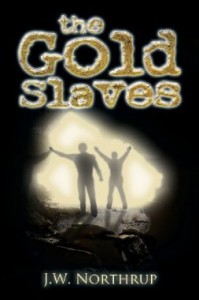


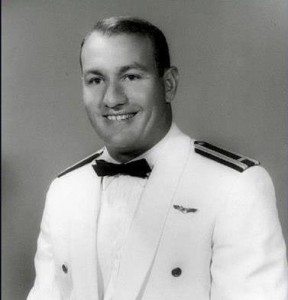

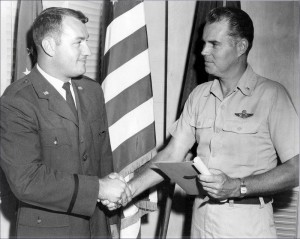
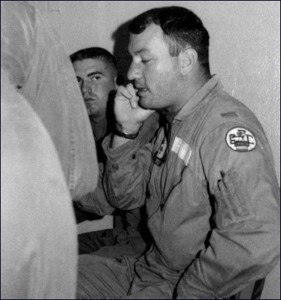

 thinking, “Oh, God. They’re going to find out I’m not that smart. Oh, I’m going to be fired.” It was all fantasy, but it’s brutally real when it’s going on. Just one quick example of depression. When I was in Beirut, I wasn’t afraid of bombs, rockets, and machine gun bullets…I was afraid that I wouldn’t do my TV package well enough. That’s really not rational, but it was how it was. I hid from my depression in work, motorcycles and more work when I was a young man. That’s how you earn all those Emmys. It’s like heroin. You do something that’s just insane–no one else could pull it off–and that dulls the depression for a couple of minutes. Lets you feel normal. Then you drop like a stone and have to start again.
thinking, “Oh, God. They’re going to find out I’m not that smart. Oh, I’m going to be fired.” It was all fantasy, but it’s brutally real when it’s going on. Just one quick example of depression. When I was in Beirut, I wasn’t afraid of bombs, rockets, and machine gun bullets…I was afraid that I wouldn’t do my TV package well enough. That’s really not rational, but it was how it was. I hid from my depression in work, motorcycles and more work when I was a young man. That’s how you earn all those Emmys. It’s like heroin. You do something that’s just insane–no one else could pull it off–and that dulls the depression for a couple of minutes. Lets you feel normal. Then you drop like a stone and have to start again. Q) In your book you have a copy of the letter your father sent you when he disowned you. I have to ask, why did you keep that letter?
Q) In your book you have a copy of the letter your father sent you when he disowned you. I have to ask, why did you keep that letter?
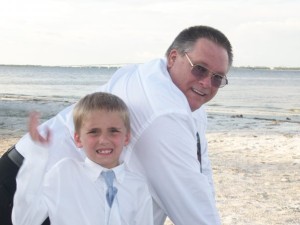

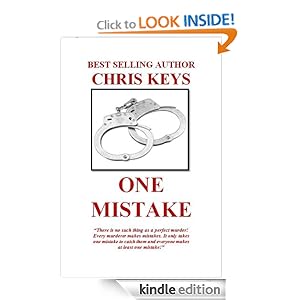

 to a particular genre doesn’t matter.
to a particular genre doesn’t matter.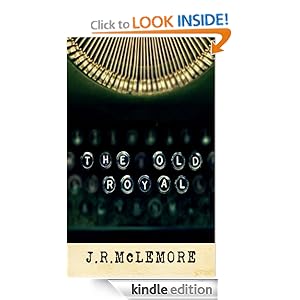
Recent Comments